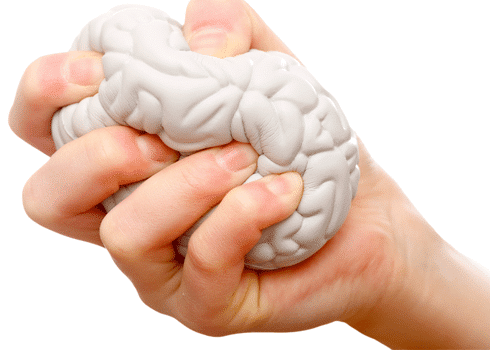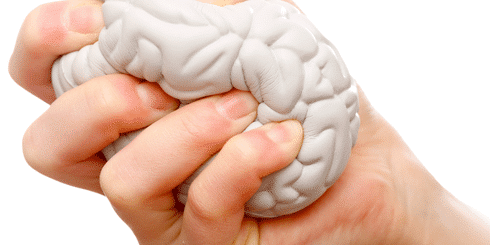This page is also available in:
![]() Français
Français
When it comes to treating migraines, most people rely on medication. It’s a proven way to relieve migraine pain and lessen the frequency and severity of migraines in the long-term. But medication is only one approach. There are other lifestyle and behavioural changes you can make to both cope with acute migraine pain and prevent migraines from striking altogether.
Focusing on developing and maintaining healthy habits is key. Combined with medication, behavioural techniques can help you to manage migraine pain when it strikes. Here’s what to do when you feel a migraine coming on.

1. Find a soothing environment.
When you notice a migraine coming on, it’s important to retreat from your regular activities. If possible, find a quiet space where you can rest and have more control of your symptoms.
- Shut off the lights and close the blinds. A migraine can make you more sensitive to light and sound. A dark, quiet room is an ideal place to rest. If you can, sleep.
- Apply hot and cold therapy. Use a compress to apply heat or cold to your neck and head. Wrap an ice pack or frozen vegetables in a towel and apply to your neck or head to numb the feeling of pain. Heating pads, hot water bottles, and hot compresses can relax tense muscles. You can also try taking a warm bath or shower.
- Take in some caffeine. Did you know that small amounts of caffeine can relieve early-stage migraine pain? Caffeine may also enhance the ability of acetaminophen (found in Tylenol and other over-the-counter pain drugs) and aspirin to alleviate pain. But be careful how much caffeine you consume, as drinking too much can cause you to experience withdrawal headaches.
2. Get enough sleep.
Migraines can keep you up at night, or wake you when you’re already asleep. But a poor night of sleep can also trigger a migraine, which can leave you caught in a dangerous cycle of fatigue and pain. Here’s what you can do to make sure you’re getting all the sleep your body needs:
- Go to bed and wake up at the same time every day. Maintaining a regular sleep schedule—even on weekends—can help you to not only fall asleep faster, but also stay asleep. Avoid naps during the day, or keep them under 20 minutes. Any longer, and napping can interfere with your ability to sleep at night.
- Wind down before bed. Do something to help you relax before you go to bed. Take a warm bath, listen to calming music, or read. Try to avoid watching television or surfing the Internet before bed, as light from screens can interfere with your body’s natural circadian rhythm. Exercising too late in the evening can also make it difficult to fall asleep.
- Limit distractions in your bedroom. If you tend to have difficulty falling asleep, make your bedroom a place reserved for sleeping and sex. Don’t work or read in bed, and if possible, don’t watch television in your bedroom. Close your bedroom door or wear earplugs to lessen noise, and use drapes or blinds to make sure the room is dark.
- Don’t go to bed until you’re tired. If you can’t fall asleep, don’t lie in bed stressing about not falling asleep. Instead, try to do something else. Read or do another soothing activity until you start to feel tired. If you’re worried about sleeping, chances are you’ll have a harder time achieving it.
- Avoid stimulants. Migraine medication can interfere with sleep. If you have trouble sleeping, check to make sure your migraine medication doesn’t include caffeine or other stimulants.

3. Eat a well-balanced diet.
Don’t underestimate the effect of the food you eat on migraine headaches. Following these basic guidelines can help you to make sure you’re not increasing your risk of migraines:
- Eat regular meals at the same time each day. Be consistent in your eating habits. Eat when you feel hungry and stop when you start to feel full.
- Don’t skip meals. Skipping breakfast or fasting can increase your risk of a migraine.
- Keep a food diary. Jot down what you eat every day, if possible. When you have a migraine, try to look back at what you ate to detect potential dietary triggers.
- Avoid food triggers. Some people find that certain types of foods or food additives trigger migraines. Aged cheese, coffee, chocolate, and wine are common culprits. Eliminate the food item from your diet to identify what effect it might be having on your migraines.
4. Get regular exercise.
Exercising a little bit each day can have a tremendous impact on your overall health. Every time you exercise, your body releases chemicals called endorphins. Endorphins interfere with pain signals, thereby reducing pain and boosting your mood. That’s why exercise can help to alleviate symptoms of anxiety and depression—two health conditions which may exacerbate migraine headaches.
Obesity can also increase your risk of headaches. If you can maintain a healthy weight through regular exercise and a healthy diet, you’ll also be on your way to managing your migraine headaches.
Speak to your doctor about the types of activities that are best for you. If possible, opt for activities you enjoy. Low-impact activities, such as swimming, cycling, and walking, are good options if you’re just starting out. Remember to take it slow. A half-hour of moderate exercise four or more days per week is enough.

5. Cope with or eliminate sources of stress.
Stress is a common migraine trigger. Though you can’t avoid stress completely, you can learn to cope with stress, and decrease your likelihood of suffering migraines. Here’s how:
- Choose simplicity. Instead of trying to pack more and more into your schedule, find a healthy balance. What can you afford to give up? You should factor in time to relax and do things you enjoy.
- Learn how to manage your time. Do you tend to leave responsibilities to the last minute? If procrastination causes you unnecessary stress, try to change your habits. Make a daily to-do list for yourself. If you can, delegate tasks at work and at home. When working on a big project, break it up into manageable chunks or allot a fixed amount of time to work on it each day.
- Take breaks. Taking regular breaks during your work hours can help you to be more productive throughout the day. Set a timer to take five- to fifteen-minute breaks. Make sure to get up from your desk to stretch and walk around.
- Find time to enjoy life. Spend at least an hour doing something you enjoy each day. Cook a meal, phone a friend, pursue a hobby, or play a game.
- Relax. When you feel stressed, focus on your breath to relax. Inhale deeply, and slowly exhale; do this for up to ten minutes at a time. Relaxation techniques such as meditation, guided imagery, tai chi, and yoga may help you to ease muscle tension and reduce stress. Remember to take the time you need to feel calm.
6. Record your activities and symptoms in a migraine diary.
A diary can help you to track your symptoms and identify migraine triggers. You should write down what time your migraines start, what you were doing, and anything relevant leading up to your symptoms. Note how long your migraines last and any treatments or behaviours that provide relief during a migraine.
Until recently, many migraine sufferers were advised to avoid their triggers. But new studies have indicated that avoiding triggers may actually increase your overall sensitivity to triggers.
It may be more helpful to learn how to cope with triggers through behavioural techniques, such as meditation, identifying and eliminating negative thought patterns, and reducing stress and anxiety when you come into contact with triggers.


